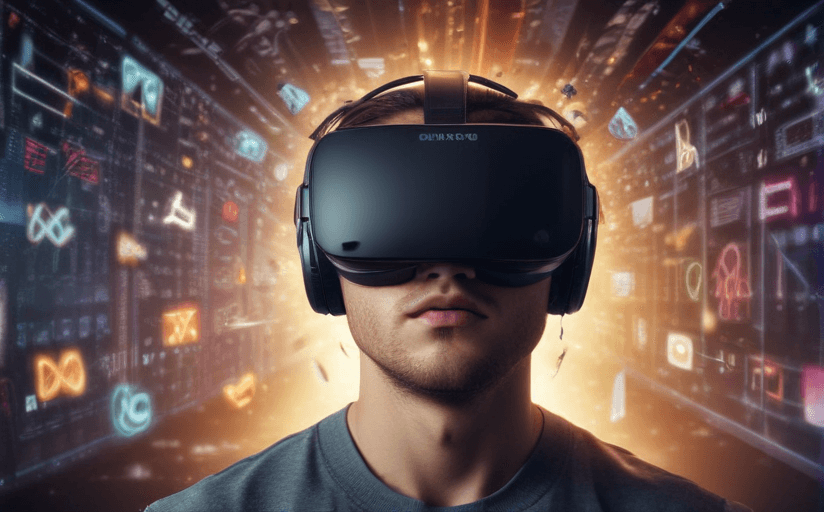The Entertainment Industry’s Big Leap: Virtual Reality
The entertainment industry has undergone innumerable transformations over the years, all orchestrated by the relentless march of technology. One groundbreaking innovation, accelerating at breakneck speed, is Virtual Reality (VR) and it's reshaping the face of entertainment.
Virtual Reality: An Introduction
As a simulated experience that can be similar to or entirely different from the real world, VR immerses users into fabricated 3D environments using computer technology. The applications of VR are spreading far and wide, affecting several sectors within the industry including music, film, video games, sports, and theatre.
Applications & Benefits
In the gaming sector, players are able to immerse into lifelike environments, leading to stimulating and enhanced gaming experiences. Film viewers can delve into the storyline in a more intimate manner, transforming the way stories are narrated and perceived. On the other hand, artists and musicians are leveraging VR to offer new ways to experience concerts and performances, transcending geographical barriers.
From creating realistic simulations to providing empathetic narratives, VR positively enhances user experience through active involvement rather than passive consumption.
Potential Challenges
However, the rise of VR poses some challenges. Traditional forms of entertainment may struggle to keep up with the sensual immediacy provided by VR tech. It also challenges the narrative structures reliant on traditional mediums; as such, filmmakers and storytellers may need to evolve their storytelling methods.
Additional challenges include ensuring the technology is affordable and comfortable to use for extended periods, as well as overcoming possible health concerns associated with long-term VR use.
VR & The Future of Entertainment
While it's incipient, the influence of VR on the entertainment industry is undeniable. With continued advancements, VR holds the potential to completely alter entertainment consumption and production, offering immersive, interactive experiences that were unimaginable a few decades ago.
Moreover, with the possibilities of combining VR with other rising technologies such as AI, the future of VR in entertainment appears limitless.
Case Studies: VR’s Influence
A clear illustration of VR's influence is the launch of Facebook’s standalone VR headset, Oculus Quest. The device provides a completely immersive gaming experience, prompting immediate appeal among gamers worldwide.
In the film industry, Alejandro González Iñárritu's 'Carne y Arena', an immersive VR installation depicted the journey of refugees. It not only pushed the boundaries of traditional storytelling but also earned Iñárritu a special Oscar recognition.
These are tangible examples of how VR is changing the entertainment world and a clear indication that this is only the beginning.
In conclusion, while it may disrupt traditional forms of entertainment, Virtual Reality represents the future of the industry, promising a realm of possibilities for more captivating, interactive, and immersive entertainment.


















Comments
Leave a Comment